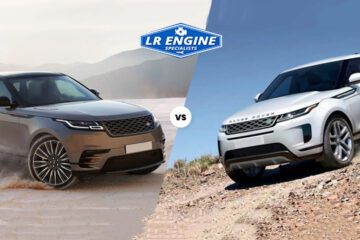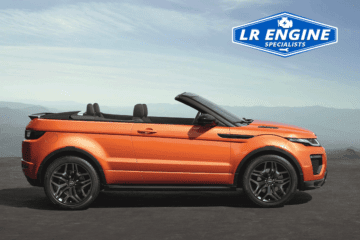Introduction:
The Range Rover Evoque Engine is eminent for its fusion of performance, luxury, and rugged capabilities. Anyhow, just like any high-performance it also has some issues that can be both costly and annoying if not tackled properly and quickly. Proper maintenance guarantees that the Evoque engine continues to offer an unparalleled driving experience, keeping the excitement of adventure alive and the essence of luxury perfect.
Range Rover Evoque Engine Specifications:
The Range Rover Evoque Engine specifications include several options, from efficient 2.0-liter four-cylinder diesel engines to potent 2.0-liter turbocharged gasoline engines. These engines are designed to deliver a blend of performance and efficiency, generating between 148 to 296 horsepower. This engine family has the latest technologies like turbocharging, variable valve timing, and lightweight construction to boost performance and efficiency.
Common fault:
– Engine Misfire:
One of the most irritating issues with the Range Rover Evoque Engine is engine misfire. This problem can indicate a rough idle, power loss, or even engine stalling. The main cause of engine misfires are faulty spark plugs, ignition coils, or fuel injectors.
– Solution:
To avoid misfires regular maintenance is very important. Replacing spark plugs and ignition coils at mentioned intervals can notably reduce the likelihood of these issues. Also, using high-quality fuel and keeping the fuel injector clean with the help of periodic servicing helps maintain ideal engine performance
– Persistent Oil Leaks:
Oil leaks present a constant challenge for Range Rover Evoque Engines. The reasons for these leaks are degraded gaskets, seals or even cracks in the engine blocks. With unsightly stains oil leaking also causes serious engine damage if it left unchecked.
– Solution:
Regular engine inspection is necessary to identify the early signs of oil leakage. Rapid replacement of worn-out gaskets and seals can prevent worsening and make sure the engine remains in optimal condition. Following the manufacturer’s suggested oil types and change intervals further safeguards the longevity of your Range Rover Evoque Engine, confirming it performs at its best for miles to come.
– Turbocharger Failure:
The turbocharged version of the Range Rover Evoque Engine is at risk of turbocharger failure, which can result in incomparable loss of power and efficiency. Symptoms of turbocharger failures are excessive smoke from the exhaust, decreased engine performance, and strange noises from the turbo area.
– Solution:
To stop these issues with turbochargers, it is necessary to maintain a clean engine oil at the accurate level. Routinely oil changes are important because dirty oil can cause premature wear and tear on the turbocharger. Also, allowing the engine to warm up before driving and cooling down completely after every journey helps protect the turbocharger from thermal stress.
– Timing Chain Problems:
Especially in older models, the Range Rover Evoque Engine also experiences timing chain problems. A failing timing chain can lead to rattling noises, deficient engine performance, and in extreme conditions, engine failure.
– Solution:
Routinely inspecting and maintaining the timing chain is important. Replacing the timing chain and related components is an early sign of wear that can prevent catastrophic engine damage. Following the manufacturer’s suggested timing schedule for the timing chain inspection and replacement is the main point to avoid this issue.
Conclusion:
The Range Rover Evoque Engine is the true wonder of automotive engineering, but it is safe from problems. Also aware of common faults such as engine misfires, oil leaks, turbocharge failures, and timing chain issues, the owner can make careful decisions to keep their vehicle running smoothly. Routine maintenance, timely repairs, and using high-quality components are necessary to maintain the performance and longevity of the Evoque engine. By tackling these issues quickly, you can make sure your Evoque continues to deliver the incredible driving experience it was designed for.


